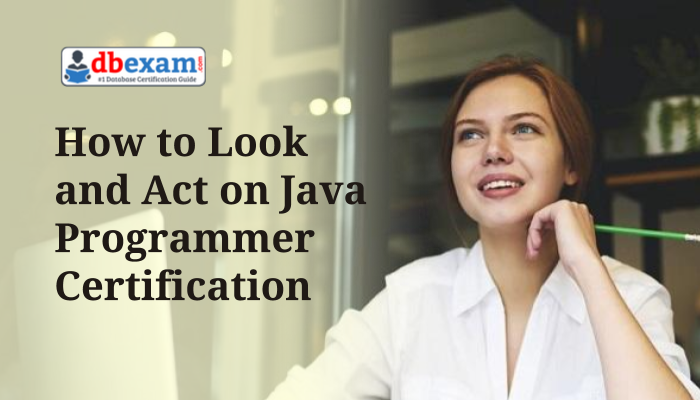There are few questions that can arise if you are thinking about getting a Java certification. Answers to all the questions are here, as long as you have motivation and clear expectations. I myself was an experienced Java Developer when I decided to study to get the Java Programmer certification. My main motivation was to improve and update my knowledge of the Java language (while at the same time getting it validated by obtaining this valuable and recognized IT credential).

I can tell you that once you start studying, you soon get to realize that the time you spend doing it is by no means wasted, but instead very worthwhile. I assure you that even if you’re an experienced programmer you’re going to learn new and interesting things, not only about the new features of the language you still don’t know, but also about some things you think you master.
What Are OCA and OCP?
If you’re new to the world of Java certifications, this OCA and OCP terminology can be a little confusing.
OCA is the entry-level certification for Java programmers. It’s a very good starting point to learn the very basics of the language (variables, data types, arrays, loops, classes, methods, exceptions) and also some not-so-basic topics (implicit narrowing, explicit casting, auto boxing, nested classes, polymorphism and inheritance, abstract classes and interfaces, and some specific APIs to deal with collections, strings and calendar objects)
OCP is the next-level certification for Java programmers. It’s a fairly more advanced exam that deals with topics like design patterns, generics, File I/O (NIO.2) , JDBC, threads and concurrency.
Obviously, in order to be eligible to do the exam for the OCP you must first get the OCA, so the certification path is clear. That being said, when a new version of Java is released (e.g. Java 8), the previously existing exams and certifications are continued and maintained by Oracle for a while (several years). This means that your first step could be to get the Java 8 OCA (the latest release) or to get the Java 7 OCA. At the moment of writing this you could even try Java 6, but I’m going to leave it out of the comparison (it makes no sense since it’s a much older one).
Use the certification study guides to learn concepts but don't waste the money on the exam. Because when you go into get a job, the certification is going to be ignored and you're going to get asked on what you know. If you are regurgitating the certification material without understanding, you aren't going to get into the door. Most places would rather have an uncertified developer but with practical knowledge rather than one with a piece of paper but doesn't really understand what is supposed to be behind it.
And in enterprise Java, most of the things that are touched on in certification can only be learned by doing in the real-world. Those skills will either be taught to you or available for you to learn as you go.
Next certification is OCPJP exams which is little tougher than tthe OCAJP exam. But, at this time you focus on only OCAJP Exam.
When Will the Java 9 Certification Exam Be Released?
According to Oracle Beta exams, evaluate new exam questions with the participation of a live audience before being released to the public. Data gathered during beta testing are used to select the best questions for the production exam, and to eliminate questions that are ambiguous, too easy or too difficult, or unhelpful in evaluating a participant’s knowledge». Beta exams can be a good opportunity to get your certification at a much lower cost (usually 50$).
